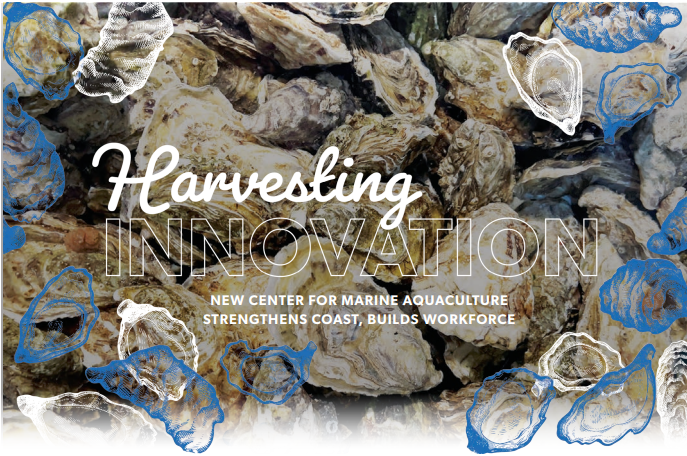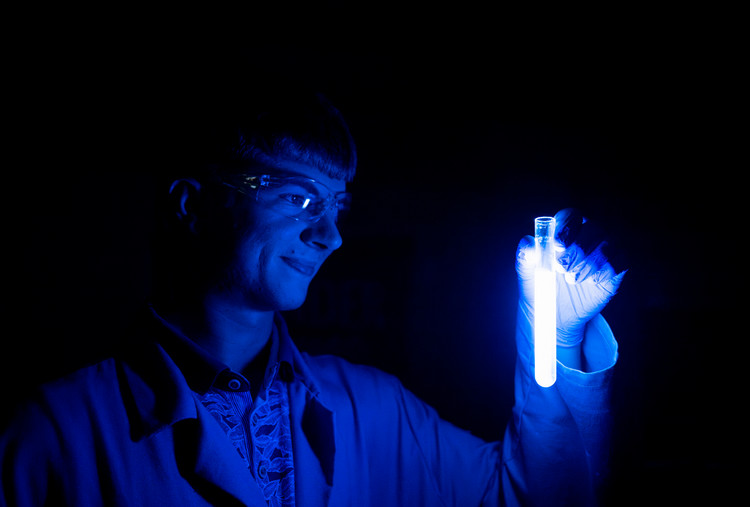Oyster Mariculture Legalized in Texas; Summit Introduces New Economic and Ecologic Possibilities
Texas Oyster Aquaculture Summit - A New Industry for Texas
Texas State Representative Todd Hunter will host legislators, scholars, restaurant owners, and state officials at the "Texas Oyster Aquaculture Summit - A New Industry for Texas" on July 10 at Texas A&M University-Corpus Christi.
CORPUS CHRISTI, Texas – Legislators, scholars, restaurant owners, and state officials gathered at Texas A&M University-Corpus Christi for “Texas Oyster Aquaculture Summit – A New Industry for Texas” held July 10. The full-day summit, hosted by State Representative Todd Hunter, focused on Texas oyster aquaculture and House Bill 1300, a new law co-authored by Hunter that allows oyster mariculture in Texas, which is predicted to generate a significant economic boost to the Coastal Bend and reduce harvest pressure on wild oyster reefs.
Morning summit sessions included discussions on topics such as the history and status of U.S. oyster aquaculture, legislation and regulatory environment, and perspective on oyster culture. The keynote luncheon was presented by Dennis Bonnen, Speaker of the Texas House of Representatives.
“House Bill 1300 is unleashing a new era of growth for the state,” said Bonnen. “While you know the House and the Senate got this bill through to the governor’s desk… it was due to all the stakeholders in this room … because of your education and advocacy… no longer is the coast without an oyster aquaculture program.”
After lunch, attendees gained more insight into this industry through panels on conservation, reef restoration, marketing, and event got to taste-test oysters.
The Island University’s Harte Research Institute for Gulf of Mexico Studies has a long history of involvement with oysters and their importance to our coastal waters, from the Sink Your Shucks program to the Oyster Resource and Recovery Center and extensive research on the mollusks. Many of Texas A&M-Corpus Christi’s own sat on summit panels, including Dr. Larry McKinney, Senior Executive Director of the HRI, who discussed how aquaculture could strengthen the sustainability of the Coastal Bend’s ecology.
“This industry meets the Institute’s vision of an economically and environmentally sustainable Gulf Coast,” said McKinney. “Oyster mariculture will reduce the impacts of oyster dredging which destroys oyster reefs, so having this new industry that’s less destructive means we have more jobs and less negative impact on the bay.”
Destructive fishing practices and a string of natural disasters have led to a steep decline in Texas oyster production since 2010. According to researchers at the HRI, oysters are vital to the health of the coast because they are responsible for increasing water quality, greater water circulation, and stabilizing the sea floor. Also, where oysters are, other sea life follows, and where sea life thrives, anglers gather – ultimately leading to greater tourism and bringing a new era of environmental and ecologic growth.
“I’m humbly grateful to be part of a team that is going to write the next chapter in the seafood industry of the Texas coast,” said Brad Lomax, President of Waterstreet Seafood Co., who spoke at the summit. “What we do here today and over the next 12 months is going to set the tone and trajectory and define the impact that this segment of the business is going to have on the state of Texas. We are all a part of writing history.”
Oyster farming, which can be done either by building a bed or suspending net bags above the ground, provides a new local source for oysters that are increasingly in demand – as many Texas restaurants must import farm-grown half-shell oysters from other states – and will bring more jobs to the Coastal Bend. However, HB 1300 still requires the Texas Parks & Wildlife Commission to adopt rules establishing a program governing the process of growing cultivated oysters.
“This oyster summit is launching something I haven’t seen in my 50-year career,” said McKinney. “We’re talking in terms of thousands of jobs and millions of dollars of economic impact through the beginning of an entirely new industry on the coast.”
Texans can expect to begin pulling oysters from the water and putting them onto plates by spring 2021.
For more information
Moving forward, the Harte Research Institute plans to establish three new programs to help with the coming oyster revolution.
Dr. Joe Fox, Harte Research Institute for Gulf of Mexico Studies (HRI) Chair for Marine Resources Development and Professor of Mariculture, Environmental Science, Coastal & Marine System Science, secured funding for these new projects, which include two oyster hatcheries and a demonstration project. These facilities will conduct research and grow oysters, but more importantly, they will help support and train a new Texas workforce.
To learn more, read Turning the Tide on Oyster Mariculture in Texas or visit http://www.growtxoysters.org.





































































































